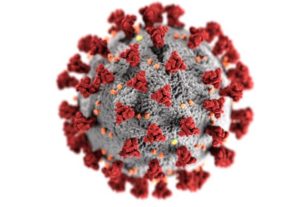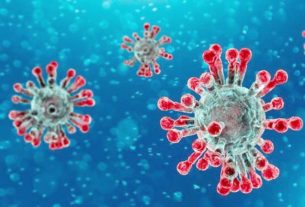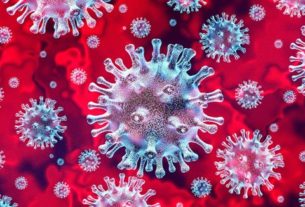From Our Bureau
31st JULY 2020
The Corona Virus (COVID-19) pandemic situation remained grim globally, with the confirmed cases across the world soaring to 1,71,06,007 and the death toll rising to 6,68,910 in the 216 affected countries and territories, according to the latest update from the World Health Organization (WHO).
Globally, American region continued to be the worst-hit with 91,52,173 confirmed cases and 3,51,121 deaths. Europe came next with 33,33,300 confirmed cases and 2,12,520 deaths. South-East Asia region’s tally stood at 20,09,963 confirmed cases and 44,031 deaths.
Eastern Mediterranean region reported 15,33,357 confirmed cases and 39,661 deaths. African region registered 7,70,421 confirmed cases and 13,234 deaths. Western Pacific region recorded 3,06,052 confirmed cases and 8,330 deaths. WHO Risk Assessment at global level remained very high.
In his regular media briefing, WHO Director-General Dr Tedros Adhanom Ghebreyesus highlighted the high rates of COVID-19 in long-term care facilities, drawing attention to a recently published WHO policy brief.
Dr Tedros also reminded that COVID-19 is not only a disease that affects the elderly and that “young people must take the same precautions to protect themselves and protect others as everyone else. They can be leaders – they should be leaders and drivers of change.”
During this pandemic, even the strongest health systems in the world have been overwhelmed and unable to adequately provide essential health services and care for conditions not associated with COVID-19.
In an address to the Virtual Symposium on the Impact of the COVID19 Pandemic and HIV on SDG 3.3, WHO Regional Director for Europe, Dr Hans Henri P. Kluge emphasized the need to “be on the alert to expand capacity to deal with a resurgence of COVID-19 and, at the same time, to maintain essential health services.”
WHO has published interim guidance on the provision of safe water, sanitation and waste management and hygienic conditions which is essential for preventing disease and for protecting human health during all infectious disease outbreaks, including during the COVID-19 pandemic.
Subject in Focus: Public health considerations while resuming international travel
In response to the COVID-19 pandemic, 198 countries/areas/territories have implemented measures that are significantly interfering with international traffic as defined under Article 43 of the International Health Regulations (IHR 2005).
Only one third of the 198 countries have provided a public health rationale for these measures, and only a few countries conduct and communicate regular risk assessments and reviews of measures.
As of 23rd July 2020, only 63 of 198 countries/areas/territories have lifted measures that were implemented to restrict the international movement of people.
As countries consider to either gradually lift or re-introduce restrictions with the intention of controlling virus transmission, WHO published “Public health considerations while resuming international travel” in order to inform national decision-making processes. The publication advises countries to conduct risk assessments, as not doing so while restricting travel may have adverse effects on the overall public health situation.
The multi-sectoral risk assessment should take into account country context, the local epidemiology and transmission patterns, the national health and social measures to control the outbreak, and the capacities of health systems in both departure and destination countries, including at points of entry. Measures must be proportionate to the public health risks and should be regularly reassessed and communicated to the public.
The guidance underlines the importance of basic surveillance, isolation of cases, contact tracing and self-monitoring as well as risk communication and community engagement. Support for countries in defining their needs and priorities is also provided in the form of an overview of capacities at points of entry along with considerations for the use of digital tools and immunity certificates. (eom)



